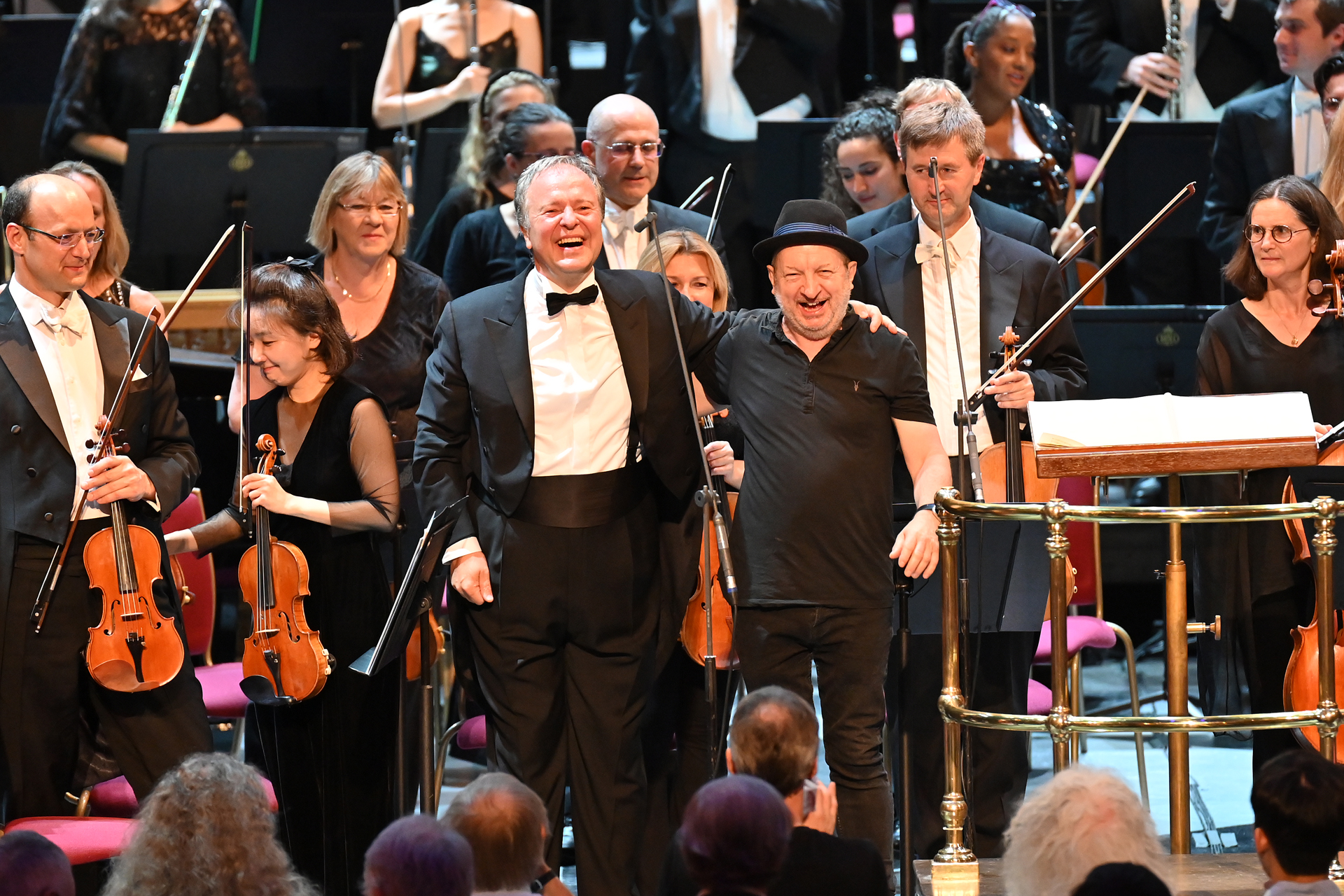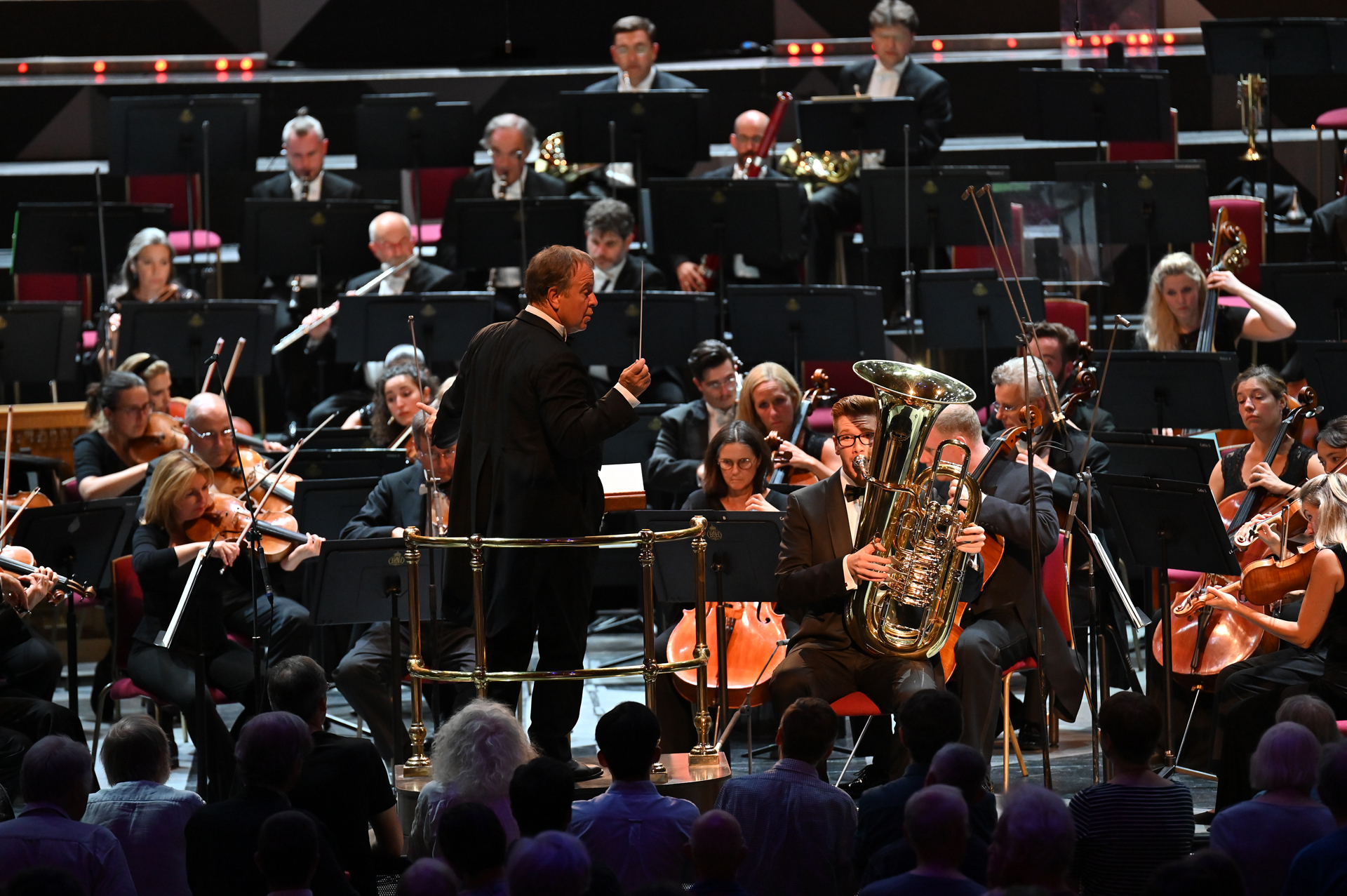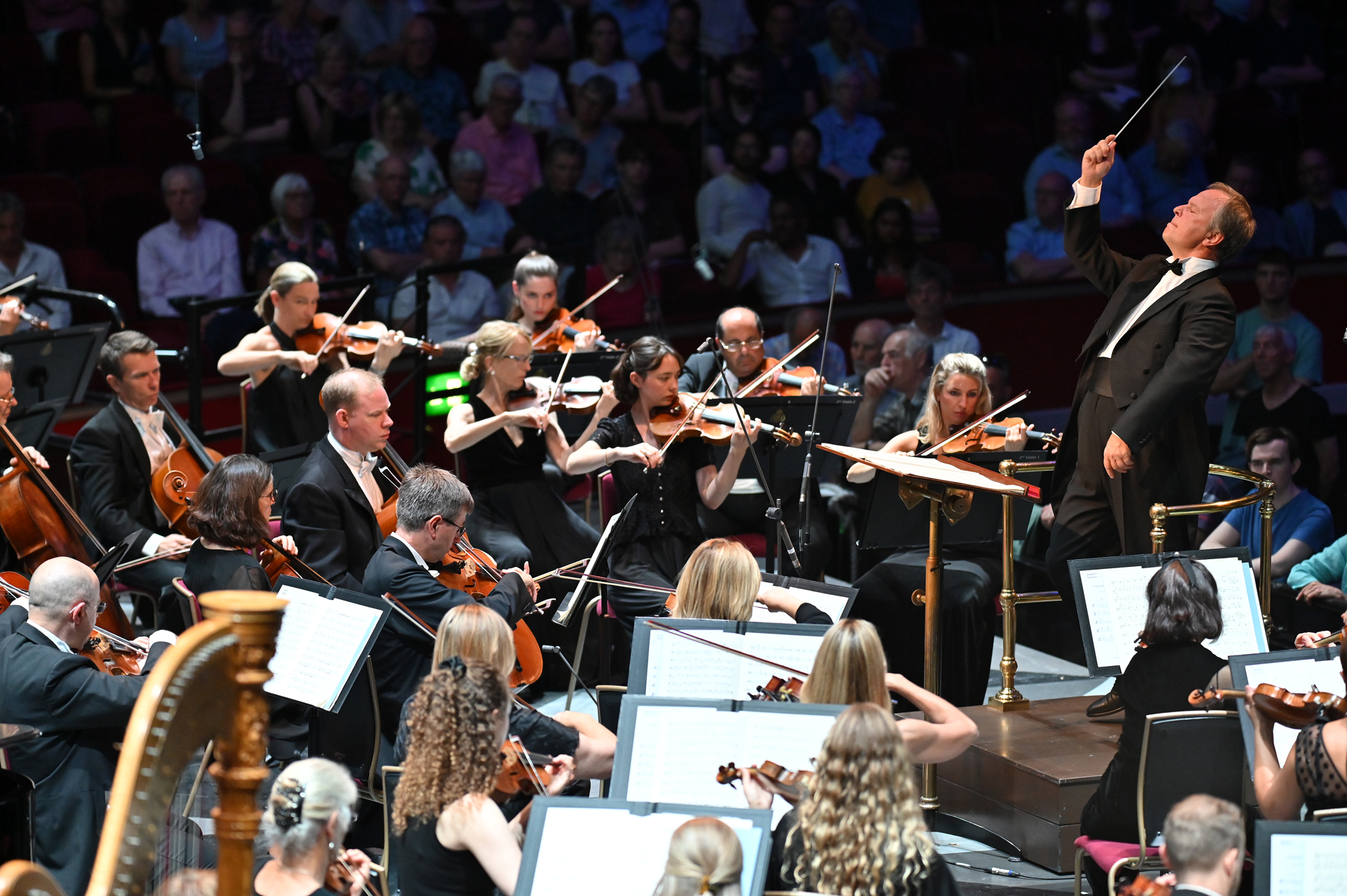Two quirky concertos – one for orchestra, though it might also be called a sinfonietta – and a big symphony: best of British but, more important, international and world class. Sakari Oramo and the BBC Symphony Orchestra sounded glorious throughout from my seat – at 7 of the Albert Hall clock if the conductor is at 12 – but the eccentric charms of Mark-Anthony Turnage and Vaughan Williams fared better than the elusive soul of Elgar.
There’s no doubt about it, Turnage’s Time Flies is a brilliant opener for any concert (and accomplished youth orchestras ought to give it a go). Co-commissioned by the BBC, Tokyo Metropolitan Symphony Orchestra and NDR Elbphilharmonie Orchestra Hamburg, its three movements, supposedly reflecting on each city, might have been a bit shorter if time wasn’t in this case money. But the burbling outer movements have their own character – a fine melody along the lines of “Girls and Boys Come Out to Play” for London, keeping its tuneful head through ingenious orchestration and key-changes, and jazzy antics that might seem more suitable for New York than Tokyo in the finale. 
Consummate entertainment continued with Vaughan Williams’ Tuba Concerto, composed in 1954 for Philip Catalinet (a recording with Barbirolli exists), though it sounds, in the outer movements, closer to the tumbling 1930s worlds of the Fourth Symphony and the ballet Job. But with humour and beauty: hearts were instantly won by the gorgeous sound Dresden Staatskapelle principal and soloist Constantin Hartwig makes at the top of the register. Reception was ecstatic, though what a shame the Arena was only half full, and hardly anyone was sitting in the seats near the top of the hall. 
The BBCSO were on gleaming form, and remained so in Elgar’s First Symphony. Promise of the ideal introspection came in the first ppp of the wonderful Nobilmente e semplice melody which dominates the work, and the dreamy seven-part string passage which brackets the first-movement development had ideal flexibility, light of touch. But why did Oramo slow down for the Scherzo’s river-music trio? It still glistened, but it didn’t soar. And what should be a magical transition turning the main march scurry into the Adagio theme felt much too laboured. 












Add comment